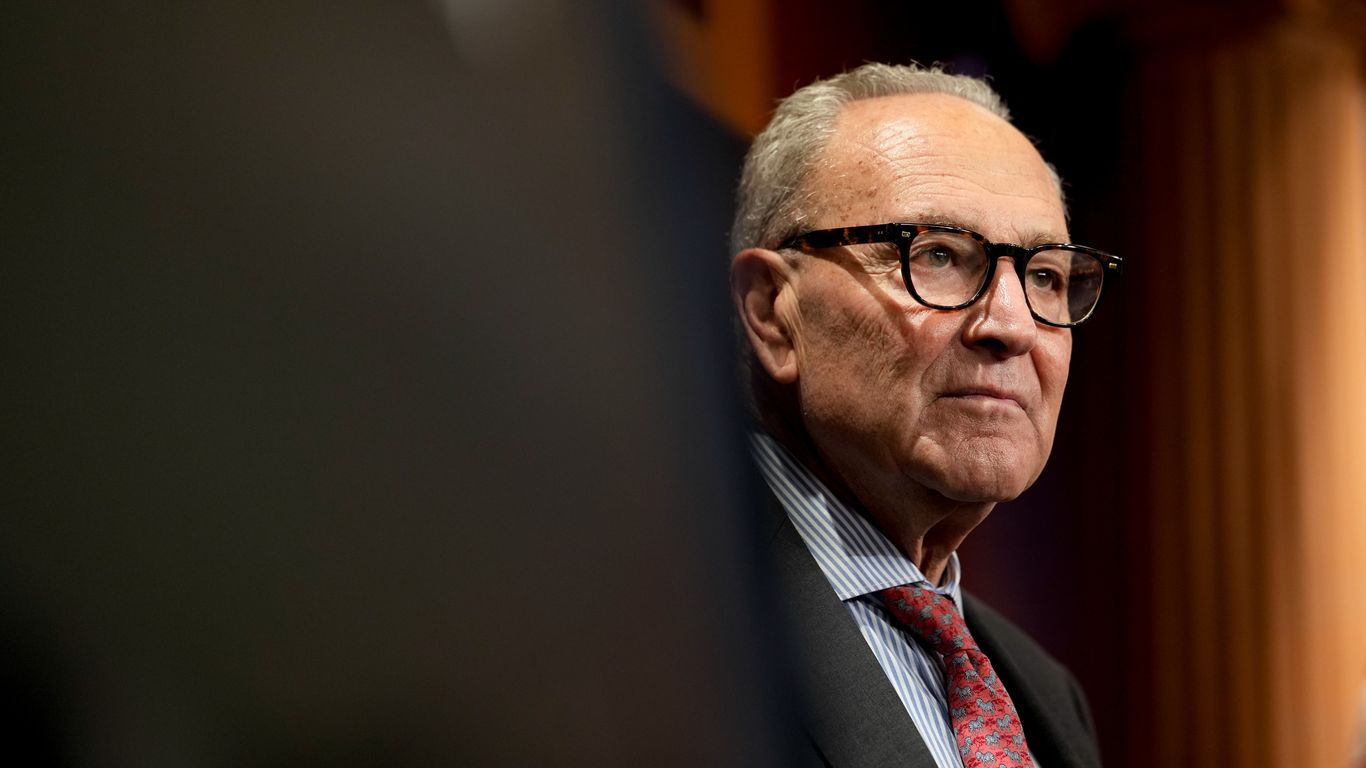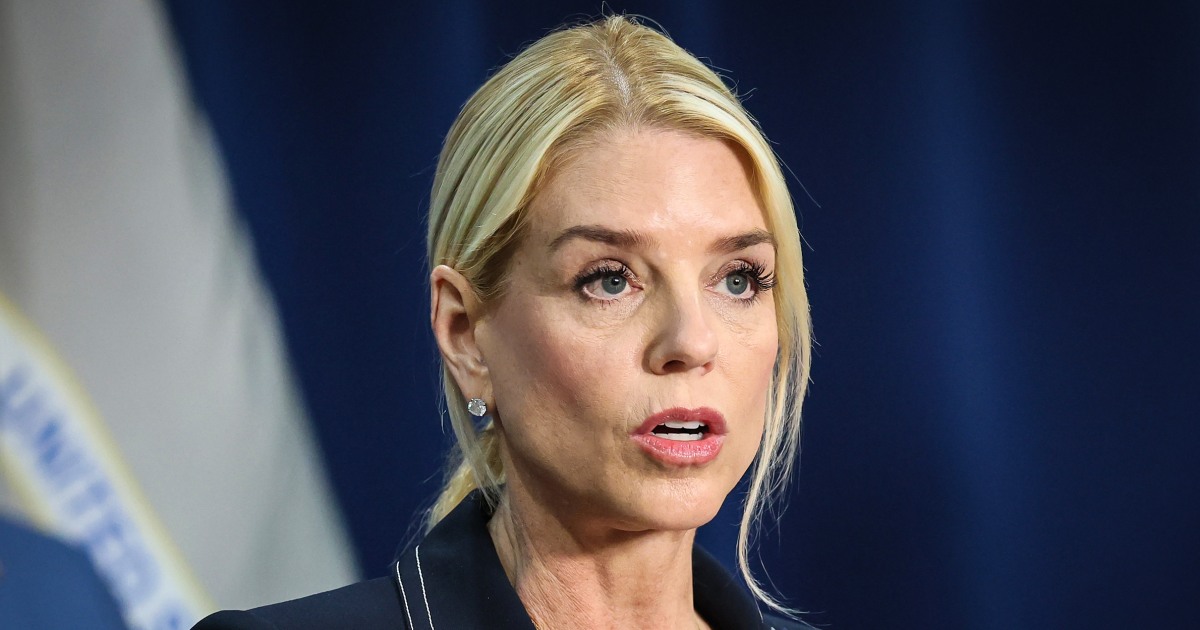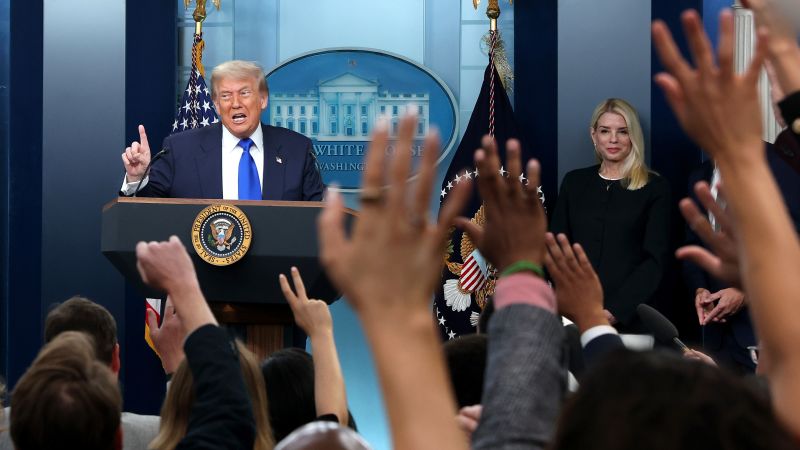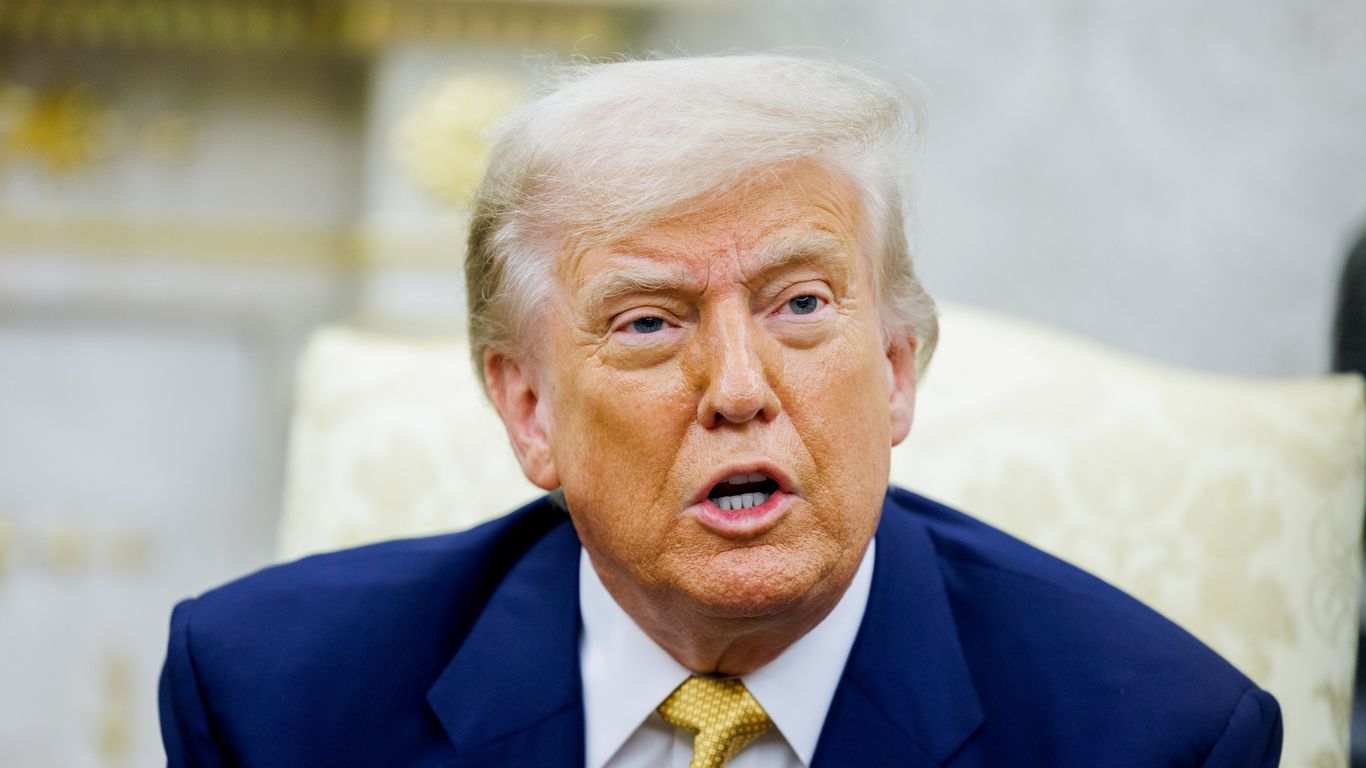Trump's Controversial Pressure on Florida Attorney General

Introduction
In a recent move that has sparked controversy, President Trump publicly pressured Florida Attorney General Pam Bondi to drop her planned investigation into Trump University. This is just the latest in a series of actions that have many Democrats concerned about the path our country is headed down.
Pushback from Democrats
Following Trump's comments, Democrats have been quick to call for their Republican colleagues to push back against the President's actions. They argue that the President's public pressure is a dangerous step towards a dictatorship, as it undermines the independence of the judicial system.
The pressure on Bondi is just one example of Trump's efforts to influence the legal system, as he has also been vocal about his dissatisfaction with the ongoing investigations into his campaign's ties to Russia.
The Dangers of Public Pressure
The use of public pressure on government officials is not a new tactic, but it is one that has been used by authoritarian regimes throughout history. The fear is that if Trump's behavior is not challenged, it could set a dangerous precedent for future leaders to wield their influence over the judicial system, potentially eroding the checks and balances that are crucial to a healthy democracy.
Conclusion
The pushback from Democrats is a reminder of the importance of upholding the principles of democracy and the need for checks and balances to ensure a fair
About the People Mentioned
Donald Trump
Donald John Trump, born June 14, 1946, in Queens, New York, is an American businessman, media personality, and politician. He graduated from the University of Pennsylvania’s Wharton School in 1968 with a degree in economics. In 1971, he took over his family’s real estate business, renaming it the Trump Organization, through which he expanded into building and managing skyscrapers, hotels, casinos, and golf courses. Trump gained widespread fame as the host of the reality TV show *The Apprentice* from 2004 to 2015, which helped establish his public persona as a successful entrepreneur. Trump entered politics as a Republican and was elected the 45th president of the United States, serving from 2017 to 2021. His presidency was marked by significant policy actions including tax cuts, deregulation, the appointment of three Supreme Court justices, renegotiation of trade agreements (notably replacing NAFTA with the USMCA), and a focus on immigration control including border wall expansion. He withdrew the U.S. from international agreements such as the Paris Climate Accord and the Iran nuclear deal, and engaged in a trade war with China. His administration’s response to the COVID-19 pandemic was criticized for downplaying the virus’s severity. Trump was impeached twice by the House of Representatives—first in 2019 for abuse of power and obstruction, and again in 2021 for incitement of insurrection—but was acquitted by the Senate both times. After losing the 2020 election to Joe Biden, Trump challenged the results, culminating in the January 6, 2021, Capitol riot. He remains a central figure in American politics, having won the 2024 presidential election and returned as the 47th president in 2025, continuing to promote policies aimed at economic growth, border security, and military strength[1][2][3][4].
Pam Bondi
Pam Bondi is an American lawyer and politician who currently serves as the 87th Attorney General of the United States, having been sworn in on February 5, 2025. A fourth-generation Floridian from Tampa, Bondi earned a Bachelor of Arts in Criminal Justice from the University of Florida and a Juris Doctor from Stetson University College of Law. She spent more than 18 years as a prosecutor in Hillsborough County, handling cases ranging from domestic violence to capital murder. Bondi was elected Florida’s 37th Attorney General in 2010, becoming the first woman to hold the position. She served two terms from 2011 to 2019, during which she gained national recognition for her efforts to combat human trafficking, opioid addiction, and fraud. In her first legislative session, she led reforms that shut down 98 unscrupulous clinics contributing to the opioid crisis. She also chaired the Florida Statewide Human Trafficking Council and was appointed to President Trump’s Opioid and Drug Abuse Commission. Bondi played a prominent role in multistate lawsuits against pharmaceutical companies and led a legal challenge to the Affordable Care Act. She was a vocal supporter of President Donald Trump, joining the White House Counsel’s Office in 2019 and serving on the legal defense team during Trump’s first impeachment trial. After leaving public office, she became a partner at the lobbying firm Ballard Partners and held leadership roles at the America First Policy Institute. Bondi was nominated by President Trump to serve as U.S. Attorney General following the withdrawal of his initial nominee, and she was confirmed by the Senate in February 2025. Her career has been marked by a focus on criminal justice reform, public safety, and conservative legal advocacy.
About the Organizations Mentioned
Trump University
Trump University was a controversial real estate training program founded in 2005 by Donald Trump, Michael Sexton, and Jonathan Spitalny, with Trump reportedly holding a 93% ownership stake. It aimed to teach real estate investment and entrepreneurial strategies through a tiered structure of courses and seminars, ranging from basic $1,495 programs to a costly $34,995 Gold Elite package[1]. The program initially offered online courses but later shifted to in-person seminars and mentorship[5]. The organization was never an accredited educational institution and did not grant degrees, despite using the term "university" in its name. This misuse led to legal issues, with the New York State Department of Education warning Trump University in 2005 and demanding it cease using the term "university" as it violated state education laws[1][3]. In response, the program changed its name to the Trump Entrepreneur Initiative in June 2010 before ceasing operations shortly thereafter[1][4]. Trump University became the subject of significant legal scrutiny due to numerous complaints and lawsuits alleging deceptive and fraudulent practices. More than 7,000 consumers purchased its programs, many of whom — including veterans, seniors, and unemployed individuals — claimed to have been defrauded. Complaints centered on false advertising, high-pressure sales tactics, and promises that were not fulfilled[1][3]. The first major lawsuit was filed in California in 2010 by a former student claiming to have paid nearly $60,000[1]. Additional class-action lawsuits and a New York State Attorney General investigation accused the company of fraud and misrepresentation[3][4]. Despite its controversial legacy, Trump University had no notable achievements in the traditional sense, as it was primarily criticized for its business practices rather than educational outcomes. The lawsuits concluded with a $25 million settlement in 2016, which Donald Trump agreed to pay without admitting wrongdoing. The case remains a cautionary example in the realm of for-profit education and business ventures tied t


















